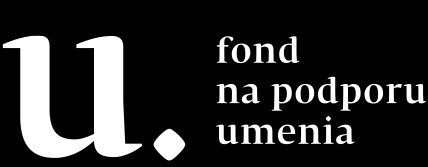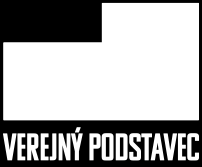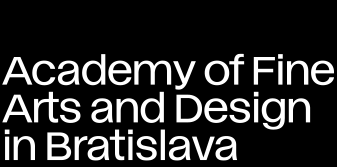The human is losing its centrality in this chaotic process, when the Earth is rebelling against the world through agents like floods, fires and viruses. We are reminded again that the climate change and environmental protection are among the most pressing issues today. It is therefore necessary to understand the specific responsibilities we have in the field of the arts on and to help our sector to grasp and address these issues effectively on a global level.
Art and culture can help us in many ways: by connecting us with previous moments of change (so that we can achieve a sense of radicalism), by questioning the necessity of the current state, by thinking about deep time, and by exposing us to many possible futures (different worlds become tangible through art). Art and culture are about creating new connections, new transnational collaborations, new sensibilities, new language for addressing political exhaustion and confront head on rampant injustice, environmental degradation and lack of liberty.
The project Liquid Dogmas gathers and mediates knowledge and experience of experts from various cultural fields, but also practitioners and thinkers from other disciplines. They are invited to articulate their visions, speak professionally and poetically at the same time, explore the limits of art language and the possibilities of art beyond the breakdown.
The project Liquid Dogmas was initiated by Martin Piaček, artist and art teacher, and is organized through the Public Pedestal association
The project was supported by funds from the budget of the capital of the Slovak Republic, Bratislava, through Bratislava City Foundation.
Partner of the project: Academy of Fine Arts and Design Bratislava
Visual identity: abcdefghch Studio
Contact: liquiddogmas@gmail.com
Liquid Dogmas on YouTube
Liquid Dogmas on Vimeo
Facebook page
Instagram: @liquiddogmas
Contributors 2020:
- Lukáš Likavčan
researcher, theorist and philosopher (SK)
Lukáš Likavčan is a researcher and theorist, writing on philosophy of technology, political ecology and visual cultures. He teaches at Center for Audiovisual Studies FAMU (Prague), and Strelka Institute for Media, Architecture and Design (Moscow). Likavčan is also a collaborator of the Digital Earth fellowship programme (www.digitalearth.art), a member of Display – Association for Research and Collective Practice (Prague), and an author of Introduction to Comparative Planetology (Strelka Press, 2019).
www.likavcan.com - Ivana Rumanová
cultural anthropologist and curator (SK)
Ivana Rumanová studied cultural anthropology at the Charles University in Prague and Cultural Projects in Public Space at the Sorbonne in Paris. She worked as a curator in the New Synagogue Žilina and currently she collaborates with tranzit.sk. She is a member of the editorial board of the magazines Kapitál and 3/4 revue, she also contributes to the periodicals Artalk.cz, Flash Art CZ / SK, Advojka, Kød.
- Anetta Mona Chisa
artist (SK/RO)
Anetta Mona Chișa is a visual artist working in sculpture, video, language and performance to make work that explores environments, language, technologies and their politics and materialities. Her works and collaborative projects have been exhibited in across the world, from n.b.k. Berlin, MoCA Miami, MuMoK Vienna, The Power Plant Toronto, Schirn Kunsthalle Frankfurt to Taipei Biennale, Moscow Biennale and the 54th Venice Biennale among others.
- Raluca Voinea
art critic and curator (RO)
Raluca Voinea is curator and art critic, based in Bucharest. Since 2012 she is co-director of tranzit.ro Association. Since 2008 she is co-editor of IDEA arts + society magazine. In 2013 she was the curator of the Romanian Pavilion at the 55th Venice Biennale. She is committed to topics such as ethical practices in art, ecology, representation of women in public life. A recent project she co-curated (together with Ovidiu Țichindeleanu as the Resurrection Committee) was After the Canal There Was Only „Our” World, at Mestna Galerija Ljubljana (2019), a research exhibition on the Suez Canal.
- Denisa Kera
philosopher, media theorist and designer (CZ/IL)
Denisa Kera is a philosopher and designer experimenting with creative strategies of public engagement in emerging science and technology controversies. Her most recent work as a fellow at BISITE, University of Salamanca was on issues of RegTech, algorithmic governance, and how to implement ethical and regulatory guidelines into blockchian and IoT infrastructures. She has a global experience as a scholar researching open and citizen science projects (National University of Singapore, Arizona State University, Charles University) around the world which she described as forms of “grassroots R&D culture,” “geek diplomacy” and “science artisanship”. She recently joined the Weizenbaum Internet Institute in Berlin as a fellow working on a book about the genealogy of automation and algorithmic governance.
github.com/anonette
anonette.net/
usal.academia.edu/DenisaKera - Martin Zet
visual artist, performer and poet (CZ)
Martin Zet is refusing to write a bio at the moment. Actually, he wants to have a rest from the continuous task of creating a bio. You can consider this to be part of his fight for his freedom. FREE MARTIN ZET!
www.martin-zet.com - Saša Spačal
Saša Spačal is a postmedia artist working at the intersection of living systems research and contemporary art. Focused on the posthuman environment-culture continuum and planetary metabolisms embedded in biopolitics and necropolitics, she develops interfaces and relations with soil agents which involve mechanical, digital and organic logic. She exhibited at venues such as Ars Electronica Festival (AT), National Art Museum of China (CHN), New Tretyakov Gallery (RUS), Centre de Cultura Contemporània Barcelona (ES), Transmediale Festival (DE). Her works received awards and nominations at Prix Ars Electronica, Japan Media Art Award, Prix Cube, New Technology Art Award and New Aesthetica Prize.
- Kaitlin Bryson
Kaitlin Bryson is an artist concerned with environmental and social justice. Her art practice and activism are focused on biological and metaphysical applications of healing, responding to the pervasive persistence of harm in the world. Bryson primarily works with fungi as resource, metaphor and collaborators for her artworks. Bryson received an MFA in Art & Ecology from the University of New Mexico and currently lives and works nomadically throughout the western United States. Bryson has received support from the Lannan and Andrew W. Mellon Foundation(s) to create ecologically remediative artworks nationally and internationally. In 2019, Bryson co-founded The Submergence Collective, an environmental arts collective focused on projects that imagine more collaborative, creative, hopeful and ecologically connected futures for our human species and the rest of the living world.
- Viktor Vejvoda
Viktor Vejvoda was born in Prague, Czechoslovakia. He studied at the Academy of Fine Arts in Prague and graduated in 2015 in the studio of New Media. He lives and works in Prague. His main interest lies in the ecology of consumption, peripheral and forgotten knowledge, the questions of value and improvisation. Viktor sympathise with the use of Open Source tools for production of self-published works (utopia.ooooo.page). He is an active member of the art collectives Trojan Tactics (TT) and Kolxoz [Колхоз].
- András Cséfalvay
András Cséfalvay is a visual artist, digital storyteller, a young academic from Slovakia currently teaching at the Academy of Fine Arts and Design in Bratislava. He studied painting and mathematics in Bratislava, after which he wrote his dissertation at AFAD on the usefulness and reality of fiction. His work explores the relationship of culture and technology, the political and ethical aspects of listening to non-dominant voices, and interpretations of the world. His latest projects look at the relationship between astronomers and indigenous people in the construction of the Mauna Kea telescopes, the flight of dinosaurs as technology for extinction survival, or the re-categorization of the planet Pluto. He is a co-founder of the digital arts platform at the AFAD in Bratislava.
- Flóra Gadó
Flóra Gadó is a curator, researcher and art critic based in Budapest. Since 2018 she works as a curator at the municipal contemporary art center Budapest Gallery and recently obtained her doctoral degree in Film, Media and Cultural Studies at Eötvös Loránd University. She curated several exhibitions both in Hungary and the neighboring countries, including TIC Gallery (Brno), Pragovka Gallery (Prague), Julius Koller Society (Bratislava) and within the framework of OFF-Biennale Budapest. In the past years she took part in several curatorial residency programs, including MeetFactory in Prague, Brno House of Arts, KAI in Tallinn and the East Art Mags program for art critics in Romania and Poland. Between 2016 and 2019 she was the Vice President of the Studio of Young Artists’ Association, Budapest. Currently, she is a lecturer at Budapest Metropolitan University and co-editor of the journal Café Babel. Since 2021, she participates in the Curatorial Practice Program at University of Bergen. Her field of interest is centered around memory politics, artistic strategies to deal with the past as well as examining issues related to mental health, healing and radical care.
- Borbála Soós
Borbála Soós (1984, Budapest) is a UK-based curator and an active advocate, participant and organiser of artistic and ecological research. Borbála’s practice responds to, disrupts and enriches environmental thinking and related social and political urgencies. She is currently undertaking an MPhil/PhD research at Goldsmiths College in the Art/Visual Cultures Departments. She holds an MA in Curating Contemporary Art, Royal College of Art, London (2012) and MA Art History and Film Studies from Eötvös Loránd University, Budapest (2009). She has been visiting lecturer at Goldsmiths College, the Royal College of Art, Central Saint Martins and Edinburgh College of Art among others.
From 2012 to 2019 she was director and curator at Tenderpixel, a contemporary art gallery in central London, showcasing a diversity of creative positions within culture, ecology, economy and politics. As an independent curator she organised projects in collaboration with institutions such as Trafó House of Contemporary Arts, Budapest; OFF-Biennale, Budapest; tranzit, Bratislava; Futura Centre for Contemporary Art/Karlin Studios, Prague; Rupert, Vilnius; ICA, London; Camden Arts Centre, London and Jupiter Woods, London. In 2020 she led a Peer Forum on rewilding at the Horniman Museum and Gardens, London and in collaboration with Artquest. She often develops projects in environments such as forests, botanical gardens and recently a collective research expedition and exhibition in the Azores Archipelago with Re_Act Contemporary Art Lab. - Oto Hudec
Oto Hudec is a Slovak multimedia artist who has created and exhibited his recent works in Slovakia, Austria, South Korea, Cabo Verde, Portugal and the USA. He creates videos, murals, animations, sculptures and works for public spaces about immigration, refugees and the impact of globalization on the environment. His projects often incorporate a utopian perspective as a way to understand food and energy production, tracing the transformation of industrial landscapes or the decline of bees. Rather than finding new scientific solutions, he focuses on how nomadic and indigenous peoples have been dealing with the topics of climate change, ecology and sustainability. He often works on projects with children and youth from disadvantaged communities. Since 2013 he has been working on a participatory project with Roma children in Slovakia — the Project Caravan, together with artist Daniela Krajčová. He was finalist of the Oskar Čepan Award for Young Artists in Slovakia in 2012.
Key concepts:
- deep time
- deep materialism
- differences that make a difference
- enlightenment entanglements
- eruptive emancipation
- economies of yields
- effective strategies and engagement
- environmental embodiment
- transspecies
- transart
- transplanting
- transform and repair
- transnational collaborations
- soils
- seeds
- sprouts
- systems
- symbiosis
- re-writing imagination
- radical wilderness
- roots of progress
- de-learning and re-skilling
- new sensibilities
- new language
- a new we
- algorithmic futures - unplugged future



